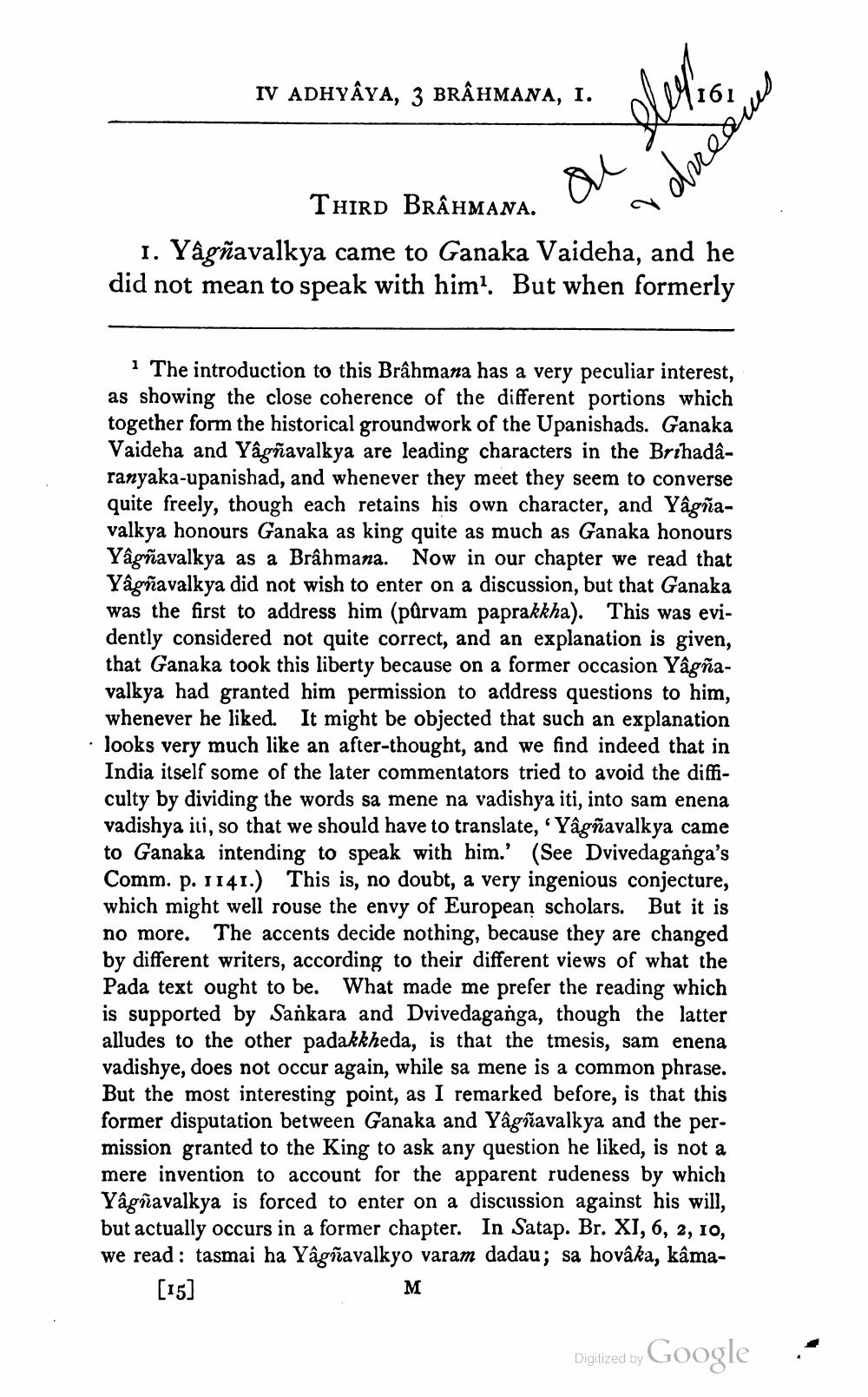________________
IV ADHYÂYA, 3 BRÂHMANA, 1.
I dareams
THIRD BRÂHMANA. 1. Yâgñavalkya came to Ganaka Vaideha, and he did not mean to speak with him?. But when formerly
i The introduction to this Brahmana has a very peculiar interest, as showing the close coherence of the different portions which together form the historical groundwork of the Upanishads. Ganaka Vaideha and Yâgñavalkya are leading characters in the Brihadaranyaka-upanishad, and whenever they meet they seem to converse quite freely, though each retains his own character, and Yâgñavalkya honours Ganaka as king quite as much as Ganaka honours Yâgñavalkya as a Brâhmana. Now in our chapter we read that Yagñavalkya did not wish to enter on a discussion, but that Ganaka was the first to address him (půrvam paprakkha). This was evidently considered not quite correct, and an explanation is given, that Ganaka took this liberty because on a former occasion Yâgñavalkya had granted him permission to address questions to him, whenever he liked. It might be objected that such an explanation looks very much like an after-thought, and we find indeed that in India itself some of the later commentators tried to avoid the difficulty by dividing the words sa mene na vadishya iti, into sam enena vadishya iti, so that we should have to translate, “Yâgñavalkya came to Ganaka intending to speak with him.' (See Dvivedaganga's Comm. p. 1141.) This is, no doubt, a very ingenious conjecture, which might well rouse the envy of European scholars. But it is no more. The accents decide nothing, because they are changed by different writers, according to their different views of what the Pada text ought to be. What made me prefer the reading which is supported by Sankara and Dvivedaganga, though the latter alludes to the other padakkheda, is that the tmesis, sam enena vadishye, does not occur again, while sa mene is a common phrase. But the most interesting point, as I remarked before, is that this former disputation between Ganaka and Yâgñavalkya and the permission granted to the King to ask any question he liked, is not a mere invention to account for the apparent rudeness by which Yâgñavalkya is forced to enter on a discussion against his will, but actually occurs in a former chapter. In Satap. Br. XI, 6, 2, 10, we read: tasmai ha Yâgñavalkyo varam dadau; sa hovâka, kâma
[15]
M
Digitized by Google
Digitized by




